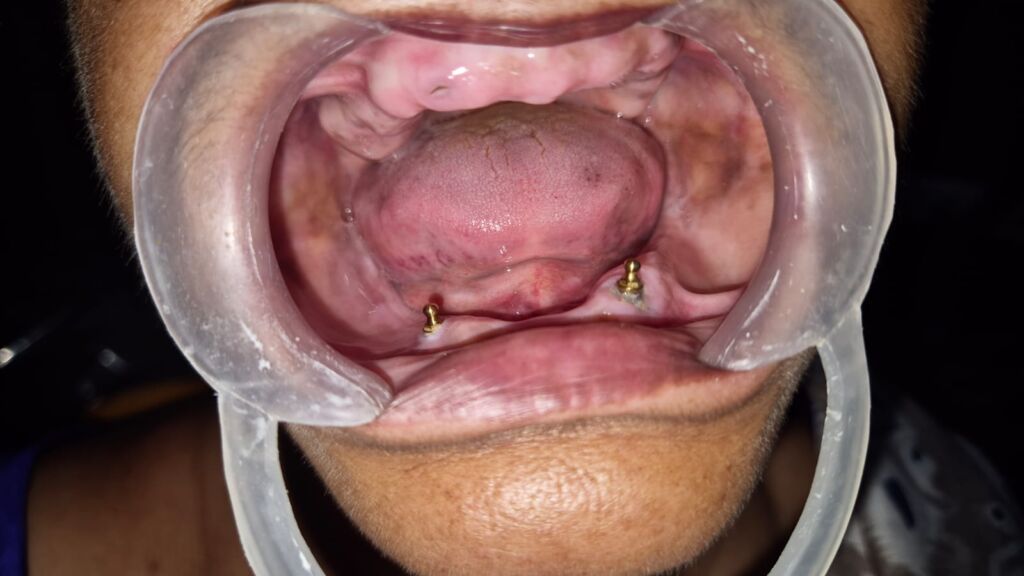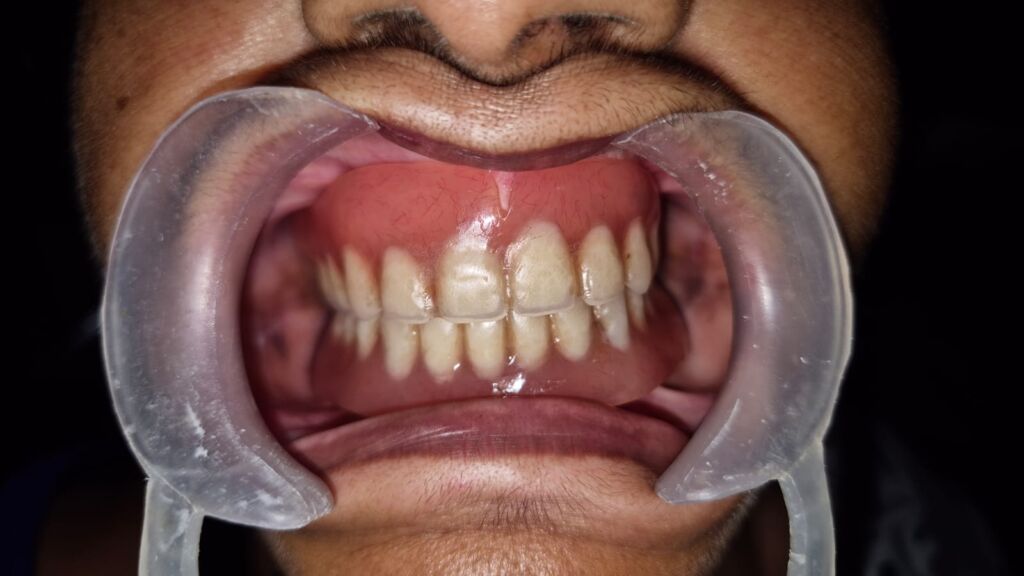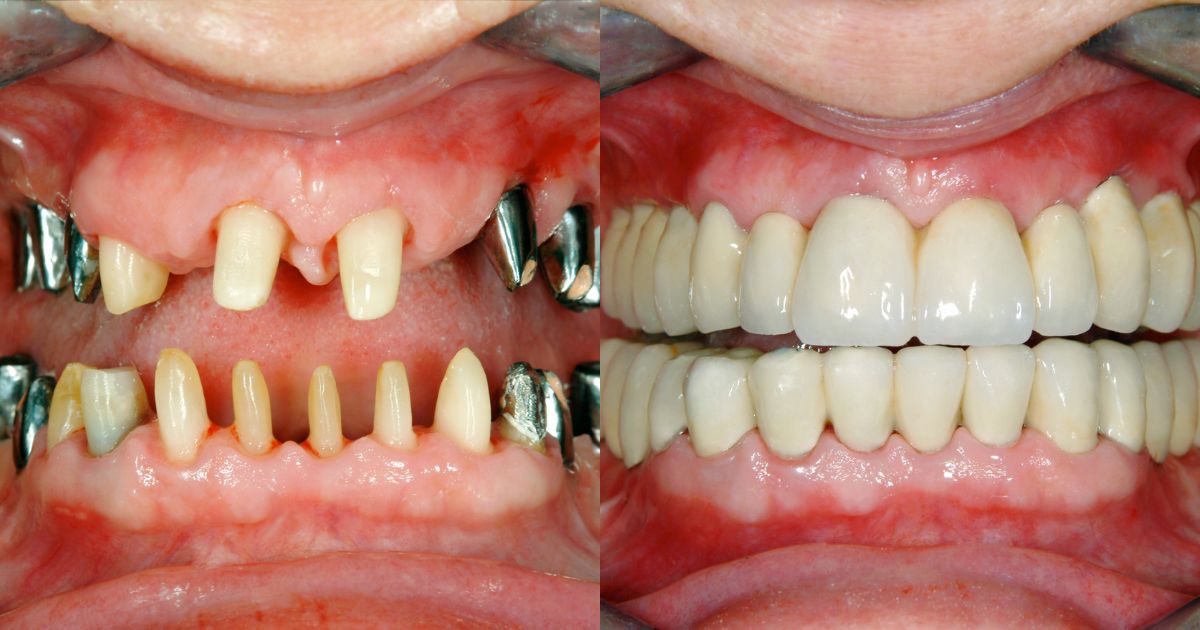Dental implants are one of the most trusted and natural-looking solutions for missing teeth. They restore both function and appearance, helping you smile, chew, and speak with confidence again. However, many patients wonder, how long does it take to recover from a dental implant procedure?
The recovery time for dental implants varies from person to person. It depends on factors like oral health, bone condition, and the number of implants placed. In this detailed guide, we’ll explore the entire healing process, from the first day after surgery to full recovery.
What Are Dental Implants?
A dental implant is a small titanium post surgically inserted into the jawbone to act as an artificial tooth root. Once it fuses with the bone, a process called osseointegration, a crown or artificial tooth is attached on top, completing the restoration.
Dental implants are preferred because they:
- Look and feel like natural teeth
- Prevent bone loss
- Require no support from adjacent teeth
- Provide a permanent and stable solution
The implant’s success depends heavily on how well your body heals after surgery, which makes understanding the recovery timeline very important.
The Average Dental Implants Recovery Timeline
| Stage | Timeline | What Happens |
| Initial Healing | 1–2 weeks | Gums heal, swelling and discomfort reduce. |
| Osseointegration Phase | 3–6 months | The implant fuses with the jawbone. |
| Abutment Placement | 1–2 weeks | Gums heal after attaching the connector piece. |
| Crown Placement | After full healing | The permanent crown is fixed, completing the process. |
The Dental Implant Healing Stages Explained
To better understand how long recovery takes, it helps to know what happens at each stage.
1. The First 24–48 Hours: Immediate Healing Phase
Right after the surgery, it’s normal to experience mild discomfort, swelling, or minor bleeding. These are natural signs that your body has started healing.
What You’ll Feel:
- Slight swelling or tenderness around the surgical area
- Light bleeding during the first 24 hours
- Some jaw stiffness or mild pain
Care Tips:
- Apply ice packs on the cheek to minimize swelling.
- Eat soft, cool foods such as yogurt, soups, and mashed potatoes.
- Avoid touching the surgical site with your tongue or fingers.
- Rest and avoid any heavy physical activity.
2. Week 1–2: Gum Healing Stage
Within a week, the gums begin to close around the implant. Pain and swelling will reduce significantly, and you’ll start to feel more comfortable.
During This Time:
- Any stitches (if non-dissolvable) may be removed.
- The implant area starts to stabilize
- Eating and talking become easier
Helpful Tips:
- Continue using a prescribed mouth rinse.
- Keep your mouth clean but brush gently near the implant site.
- Avoid smoking and alcohol, as they slow healing.
- Stick to soft foods if your gums still feel tender.
3. Month 1–3: Osseointegration Stage
This is the most critical phase of the healing process. The implant slowly bonds with your jawbone, forming a strong base that will support your new tooth.
What’s Happening Inside:
- Bone cells grow around the implant surface.
- The implant becomes part of your jaw structure.
- There’s usually no pain, though the healing continues internally.
Even if you feel fine, this stage requires patience. Proper healing here ensures long-term success and stability of the implant.
4. Month 4–6: Abutment and Crown Placement
Once the implant has fused with the bone, your dentist will place an abutment, which connects the implant to the crown. After the gums heal around it (usually 1–2 weeks), your final dental crown is attached.
The crown is custom-made to match the color, shape, and size of your natural teeth. Once fitted, it looks completely natural and functions just like a real tooth.
What Affects Dental Implant Recovery Time?
Not everyone heals at the same pace. Several factors can affect how long it takes for your dental implant to recover fully.
- Bone Health and Density: A strong jawbone helps the implant integrate faster. If the bone is thin or weak, a bone graft may be necessary before the implant, which adds extra healing time.
- Oral Hygiene: Good oral hygiene is crucial for preventing infection and ensuring proper healing. Poor cleaning habits can lead to inflammation or implant failure.
- Overall Health: People with diabetes, autoimmune conditions, or poor immune response may take longer to heal. Managing chronic health conditions and maintaining a balanced diet can improve recovery.
- Smoking and Alcohol: Nicotine restricts blood flow and reduces oxygen supply to tissues, making healing slower. Alcohol can also interfere with medication and wound recovery. It’s best to avoid both during recovery.
- Number of Implants: Healing time increases if you’ve had multiple implants placed or undergone full-mouth reconstruction compared to a single implant.
- Additional Procedures: If you had a sinus lift or bone grafting, expect a longer recovery timeline since these procedures need their own healing period before the implant can be placed.
Tips to Speed Up Dental Implant Recovery
While you can’t rush natural healing, you can support your body’s recovery with proper care.
- Follow Post-Operative Instructions: Your dentist will give you clear aftercare guidelines. Stick to them strictly, especially when it comes to medications, diet, and cleaning.
- Maintain Gentle Oral Hygiene: Use a soft-bristled toothbrush and avoid brushing directly over the implant site for the first few days. Rinse your mouth gently with salt water or an antiseptic mouthwash to reduce bacteria.
- Eat Soft, Nutritious Foods: Soft foods like oatmeal, scrambled eggs, and smoothies are ideal in the first few weeks. Avoid hard, crunchy, or sticky foods that can disturb the implant site.
- Stay Hydrated: Drink plenty of water to flush out toxins and keep your mouth moist, which promotes tissue healing.
- Avoid Pressure on the Implant: Do not chew on the side where the implant is placed until it’s fully healed.
- Keep Regular Follow-Up Appointments: Your dentist will monitor your healing progress through periodic check-ups. Regular visits help identify and manage any early signs of complications.
Common Symptoms During Dental Implant Recovery
Some symptoms are completely normal during the healing process. However, knowing what’s normal and what’s not helps you stay alert.
Normal Symptoms
Normal Symptoms
- Mild pain or soreness for a few days
- Slight swelling around gums and jaw
- Minor bleeding within the first 24–48 hours
- Temporary bruising near the surgical area
When to Contact Your Dentist
Call your dentist immediately if you experience:
- Continuous or heavy bleeding
- Severe pain that doesn’t improve with medication
- Swelling that worsens after a few days
- Fever, pus, or a bad taste in the mouth
Prompt attention can prevent infection and ensure successful healing.


Eating After Dental Implant Surgery
A common question patients ask is: When can I start eating normally again?
You can usually start eating soft foods within 24 to 48 hours. Avoid anything hard, crunchy, or sticky for at least a couple of weeks. Gradually reintroduce solid foods as your comfort level improves.
Foods to Eat During Recovery:
- Mashed potatoes
- Smoothies
- Yogurt
- Scrambled eggs
- Soups
Foods to Avoid:
- Nuts, popcorn, and chips
- Sticky sweets like caramel
- Hot and spicy foods
- Carbonated or alcoholic drinks
Following a balanced diet supports your immune system and speeds up tissue healing.
Dental Implant Healing vs. Complete Recovery
It’s important to understand that gum healing and complete implant recovery are not the same.
- Gum Healing: Takes about 1–2 weeks.
- Osseointegration (Bone Healing): Can take 3–6 months.
Even if your gums look healed from the outside, the internal bone healing continues for several months. Only when osseointegration is complete can the final crown be safely attached.
How to Maintain Dental Implants After Recovery
Once your implants have fully healed, maintenance becomes key. With proper care, implants can last for decades or even a lifetime.
- Brush Twice a Day: Use a soft-bristled toothbrush and fluoride toothpaste to clean your teeth and implant crown.
- Floss Daily: Clean between your teeth using dental floss or an interdental brush to prevent plaque buildup.
- Regular Dental Check-Ups: Visit your dentist every six months for cleaning and examination.
- Avoid Bad Habits: Don’t chew ice, open bottles with your teeth, or use your teeth as tools.
- Maintain a Healthy Lifestyle: Eat a balanced diet, quit smoking, and manage any chronic health conditions. These habits support long-term implant success.
Why Choose Teeth Care Multispeciality Dental Clinic for Dental Implants
The success of a dental implant doesn’t just depend on your body’s healing, it also depends on your dentist’s skill and experience.
At Teeth Care Multispeciality Dental Clinic, our implantologists specialize in minimally invasive implant surgery that ensures:
- Reduced discomfort
- Faster healing time
- Long-lasting, natural-looking results
Our clinic combines advanced dental technology with personalized care, helping patients achieve healthy smiles that last for years.
Conclusion
So, how long is the recovery time for dental implants?
In most cases, it takes about 3 to 6 months for complete healing. The first 1–2 weeks involve gum recovery, while osseointegration takes a few months more.
Every patient’s healing journey is different, but with proper care, patience, and guidance from an experienced dental team, your implants can last a lifetime.
If you’re considering dental implants, consult the experts at Teeth Care Multispeciality Dental Clinic to understand your treatment plan and personalized recovery timeline.
